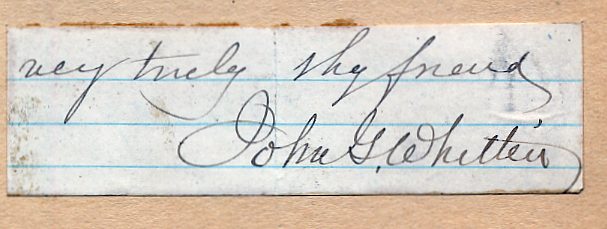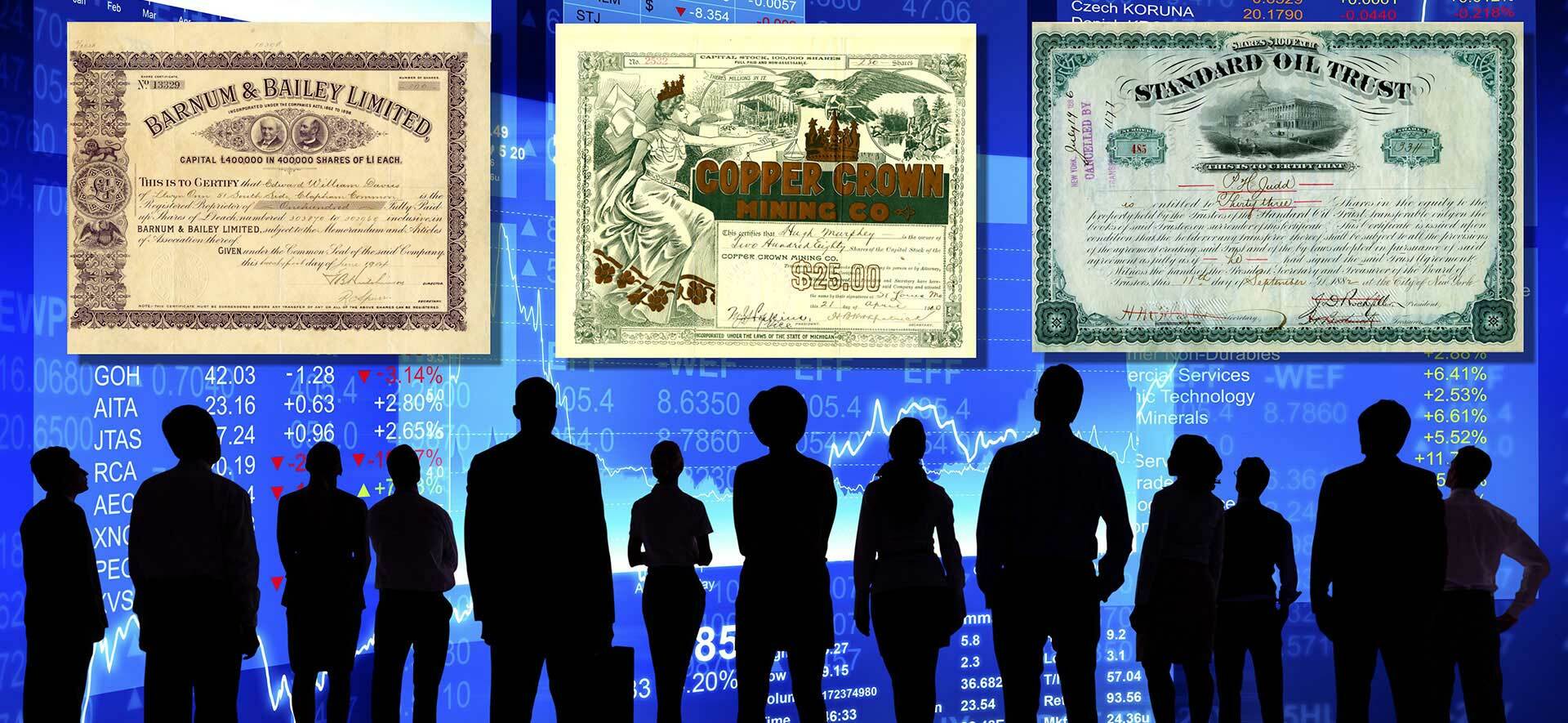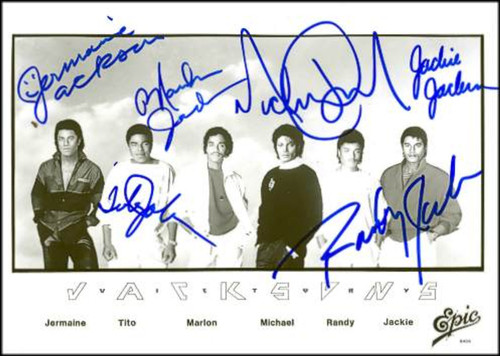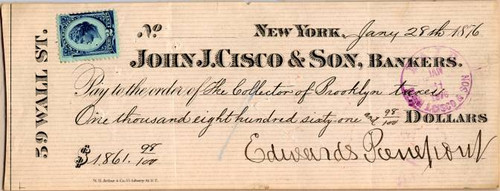Original photograph of poet John Greenleaf Whittier with hand written and signed sentiment mounted below the photo. Autograph sentiment reads "Very truly thy friend, John G. Whittier". Size of the photo is 3 3/4" x 5 1/2", of the autograph area 1 1/4" x 3 3/4", and overall size is 6" x 8 3/4". 
John Greenleaf Whittier's Note and Signature John Greenleaf Whittier Born December 17, 1807 Haverhill, Massachusetts, United States Died September 7, 1892 Hampton Falls, New Hampshire, United States Occupation Writer John Greenleaf Whittier was an influential American Quaker poet and ardent advocate of the abolition of slavery in the United States. Early Life and Work John Greenleaf Whittier was born to John and Abigail (Hussey) at their rural homestead in Haverhill, Massachusetts on December 17, 1807. He grew up on the farm in a household with his parents, a brother and two sisters, a maternal aunt and paternal uncle, and a constant flow of visitors and hired hands for the farm. John himself was not cut out for hard farm labor and suffered from bad health and physical frailty his whole life. Although he received little formal education, he was an avid reader who studied his father's six books on Quakerism until their teachings became the foundation of his ideology. Whittier was heavily influenced by the doctrines of his religion, particularly its stress on humanitarianism, compassion, and social responsibility. First introduced to poetry by a teacher, Whittier published his first poem in 1826 in William Lloyd Garrison's Newburyport Free Press, a connection that began their devoted friendship. John then attended Haverhill Academy from 1827 to 1828 and completed a high school education in only two terms. After this, Garrison secured the young writer an editorial position for the American Manufacturer in Boston. Whittier became an out-spoken critic of President Andrew Jackson, and by 1830 was editor of the prominent New England Weekly Review in Hartford, Connecticut, the most influential Whig journal in New England. During the 1830s, Whittier became interested in politics, but after losing a Congressional election in 1832, he suffered a nervous breakdown and returned home at age twenty-five. The year 1833 was a turning point for Whittier; he resurrected his correspondence with Garrison, and the passionate abolitionist began to encourage the young Quaker to join his cause. In June of 1833, Whittier published the antislavery pamphlet Justice and Expediency, and from there dedicated the next twenty years of his life to the abolitionist cause. The controversial pamphlet destroyed all of his political hopes--as his demand for immediate emancipation alienated both northern businessmen and southern slaveholders--but it also sealed his commitment to a cause that he deemed morally correct and socially necessary. He was a founding member of the American Anti-Slavery Society and signed the Anti-Slavery Declaration of 1833, which he often considered the most significant action of his life. Whittier's political skill made him useful as a lobbyist, and his willingness to badger anti-slavery congressional leaders into joining the abolitionist cause was invaluable. From 1835 to 1838, he traveled widely in the North, attending conventions, securing votes, speaking to the public, and lobbying politicians. As he did so, Whittier received his fair share of violent responses, being several times mobbed, stoned, and run out of town. In 1838 he became editor of The Pennsylvanian Freeman, one of the leading antislavery papers in the North. He also continued to write poetry, and not surprisingly, nearly all of his poems dealt with the problem of slavery. By the end of the 1830s, the unity of the abolitionist movement had begun to fracture. Whittier stuck to his belief that moral action apart from political effort was futile. He knew that success required legislative change, not merely moral suasion. This opinion alone engendered a bitter split from Garrison, and Whittier went on to become a founding member of the Liberty Party in 1840. Around this time, the stresses of editorial duties, worsening health, and dangerous mob violence caused him to have a physical breakdown. Whittier went home to Amesbury, and remained there for the rest of his life, ending his active participation in abolition. Even so, he continued to believe that the best way to gain abolitionist support was to broaden the Liberty Party's political appeal, and Whittier persisted in advocating the addition of other issues to their platform. He eventually participated in the evolution of the Liberty Party into the Free Soil Party, and some say his greatest political feat was convincing Charles Sumner to run on the Free-Soil ticket for the U.S. Senate in 1850. As of 1848, Whittier was editor of The National Era, one of the most influential abolitionist newspapers in the North. For the next ten years it featured the best of his writing, both as prose and poetry. Being confined to his home and away from the action offered Whittier a chance to write better abolitionist poetry; he was even poet laureate for his party. Whittier's poems often used slavery to symbolize all kinds of oppression (physical, spiritual, economic), and his poems stirred up popular response because they appealed to feelings rather than logic. Whittier produced two collections of antislavery poetry: Poems Written during the Progress of the Abolition Question in the United States, between 1830 and 1838 and Voices of Freedom (1846). The passage of the Thirteenth Amendment in 1865 ended both slavery and his public cause, so Whittier turned to other forms of poetry for the remainder of his life. Whittier died of a stroke on September 7, 1892 in Hampton Falls, New Hampshire. He is buried in Amesbury, Massachusetts.[citation needed] His first two published books were Legends of New England (1831) and the poem Moll Pitcher (1832). In 1833 he published The Song of the Vermonters, 1779, which he had anonymously inserted in the The New England Magazine. The poem was erroneously attributed to Ethan Allen for nearly sixty years. In 1838, a mob burned Whittier out of his offices in the antislavery center of Pennsylvania Hall in Philadelphia.[1] Highly regarded in his lifetime and for a period thereafter, he is now largely remembered for his patriotic poem Barbara Frietchie and for a number of poems turned into hymns. Although Victorian in style, his hymns exhibit sentimentality, imagination and universalism which differ from other 19th century hymns[citation needed]. Another widely known piece is Dear Lord and Father of Mankind, taken from his poem The Brewing of Soma.He also wrote a book speking out against slavery in Poems Written during the Progress of th Abolition Question Whittier's Quaker beliefs are illustrated by the hymn that begins: Broadside publication of Whittier's Our Countrymen in ChainsO Brother Man, fold to thy heart thy brother: Where pity dwells, the peace of God is there; To worship rightly is to love each other, Each smile a hymn, each kindly word a prayer. Also shown in his poem "To Rönge" in honour of Johannes Ronge, the German religious figure and rebel leader of the 1848 rebellion in Germany: Thy work is to hew down. In God's name then: Put nerve into thy task. Let other men; Plant, as they may, that better tree whose fruit, The wounded bosom of the Church shall heal. Whittier's poem "At Port Royal 1861" describes the experience of Northern abolitionists arriving at Port Royal, South Carolina, as teachers and missionaries for the slaves who had been left behind when their owners fled because the Union navy would arrive to blockade the coast. The poem includes the "Song of the Negro Boatmen," written in dialect: Oh, praise an' tanks! De Lord he come To set de people free; An' massa tink it day ob doom, An' we ob jubilee. De Lord dat heap de Red Sea waves He jus' as 'trong as den; He say de word: we las' night slaves; To-day, de Lord's freemen. De yam will grow, de cotton blow, We'll hab de rice an' corn: Oh, nebber you fear, if nebber you hear De driver blow his horn! Of all the poetry inspired by the Civil War, the "Song of the Negro Boatmen" was one of the most widely printed,[2] and though Whittier never actually visited Port Royal, an abolitionist working there described his "Song of the Negro Boatmen" as "wonderfully applicable as we were being rowed across Hilton Head Harbor among United States gunboats."[3] A bridge named for Whittier, built in the style of the Sagamore and Bourne Bridges spanning Cape Cod Canal, carries Interstate 95 from Amesbury to Newburyport over the Merrimack River. The city of Whittier, California, the community of Whittier, Alaska, the Minneapolis neighborhood of Whittier and the town of Greenleaf, Idaho were named in his honor. Both Whittier College and Whittier Law School are also named after him. In addition, an elementary school in Kenosha, Wisconsin and Berkeley, California bear his name, along with middle schools in San Antonio, Texas, Sioux Falls, South Dakota and Oak Park, Illinois. From 1922 to 2007, there was also a Whittier Elementary in Royal Oak, Michigan. Whittier's hometown of Haverhill, Massachusetts has named many buildings and landmarks in his honor including J.G. Whittier Middle School, Greenleaf Elementary, and Whittier Regional Vocational Technical High School. Whittier's family farm, John Greenleaf Whittier Homestead also called "Whittier's Birthplace" is now a historic site open to the public as is the John Greenleaf Whittier Home, his residence in Amesbury for 56 years. The alternate history story P.'s Correspondence (1846) by Nathaniel Hawthorne, considered the first such story ever published in English, includes the notice "Whittier, a fiery Quaker youth, to whom the muse had perversely assigned a battle-trumpet, got himself lynched, in South Carolina". The date of that event in Hawthorne's invented timeline was 1835. Quotes "For of all sad words of tongue or pen, The saddest are these: 'It might have been!'" from Whittier's "Maud Muller" "'Shoot, if you must, this old gray head, / But spare your country's flag!' she said." from Whittier's "Barbara Frietchie" "Then lift that manly right hand, bold ploughman of the wave! Its branded palm shall prophesy, 'Salvation to the Slave!" from Whittier's "The Branded Hand" History from Wikipedia and OldCompanyResearch.com (old stock certificate research service).

John Greenleaf Whittier's Note and Signature














